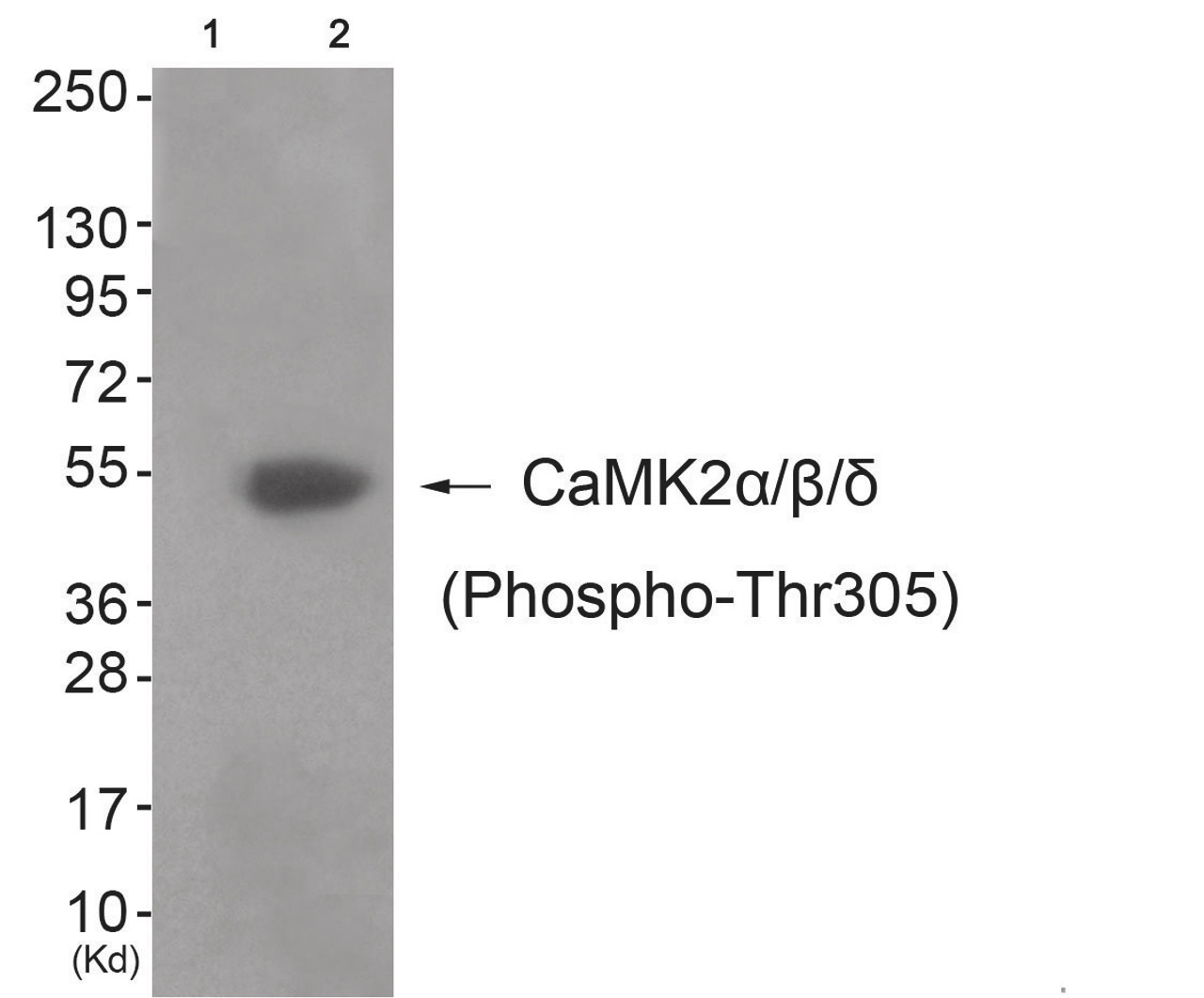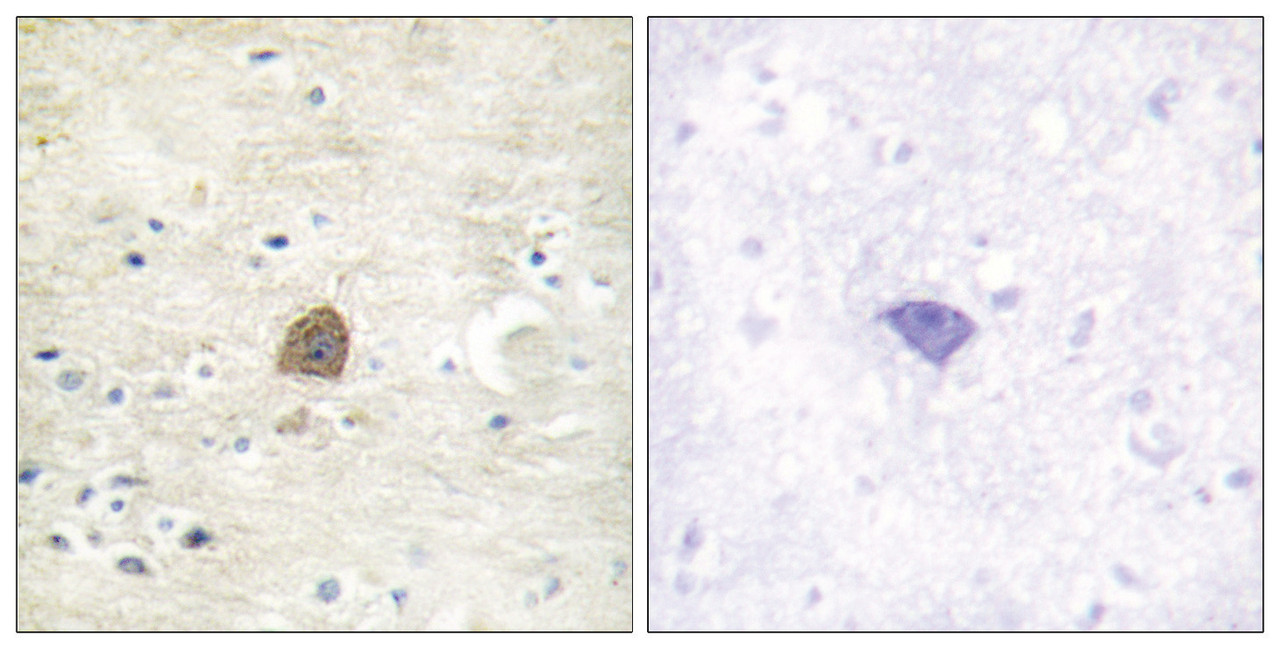Product Description
CaMK2 alpha/beta/delta (phospho Thr305) Antibody | 79-776 | ProSci
Host: Rabbit
Reactivity: Human, Mouse, Rat
Homology: N/A
Immunogen: CaMK2 alpha/beta/delta (phospho Thr305) antibody was raised against a peptide sequence around phosphorylation site of threonine 305 (I-L-T (p) -T-M) derived from Human CaMK2alpha/beta/delta.
Research Area: Phospho-Specific
Tested Application: WB, IHC
Application: Western Blot: 1:500~1:1000, Immunohistochemistry: 1:50~1:100
Specificiy: The antibody detects endogenous levels of CaMKII only when phosphorylated at threonine 305.
Positive Control 1: N/A
Positive Control 2: N/A
Positive Control 3: N/A
Positive Control 4: N/A
Positive Control 5: N/A
Positive Control 6: N/A
Molecular Weight: 54 kDa
Validation: N/A
Isoform: N/A
Purification: Antibodies were purified by affinity-chromatography using epitope-specific peptide.
Clonality: Polyclonal
Clone: N/A
Isotype: IgG
Conjugate: Unconjugated
Physical State: Liquid
Buffer: Antibody supplied in phosphate buffered saline (without Mg2+ and Ca2+) , pH 7.4, 150mM NaCl, 0.02% sodium azide and 50% glycerol.
Concentration: 1 mg/mL
Storage Condition: Store antibody at -20˚C for up to one year.
Alternate Name: CAMK2A, KCC2A, kinase CaMK2-alpha, CaMKII-alpha
User Note: N/A
BACKGROUND: Calcium/calmodulin-dependent protein kinase that functions autonomously after Ca2+/calmodulin-binding and autophosphorylation, and is involved in dendritic spine and synapse formation, neuronal plasticity and regulation of sarcoplasmic reticulum Ca2+ transport in skeletal muscle. In neurons, plays an essential structural role in the reorganization of the actin cytoskeleton during plasticity by binding and bundling actin filaments in a kinase-independent manner. This structural function is required for correct targeting of CaMK2A, which acts downstream of NMDAR to promote dendritic spine and synapse formation and maintain synaptic plasticity which enables long-term potentiation (LTP) and hippocampus-dependent learning. In developing hippocampal neurons, promotes arborization of the dendritic tree and in mature neurons, promotes dendritic remodeling. Participates in the modulation of skeletal muscle function in response to exercise. In slow-twitch muscles, is involved in regulation of sarcoplasmic reticulum (SR) Ca2+ transport and in fast-twitch muscle participates in the control of Ca2+ release from the SR through phosphorylation of triadin, a ryanodine receptor-coupling factor, and phospholamban (PLN/PLB) , an endogenous inhibitor of SERCA2A/ATP2A2.
 Euro
Euro
 USD
USD
 British Pound
British Pound
 NULL
NULL












